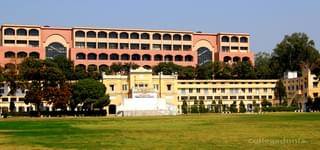BSc Agriculture and BSc Horticulture are undergraduate courses, both focusing on the agricultural domain but offering unique specializations and career paths to explore. BSc Horticulture mainly focuses on the Cultivation of seeds, vegetables, plants, fruits, flowers, and herbs, on the other hand, BSc Agriculture focuses on Agriculture economics, Animal husbandry, Environmental ecology, etc.
The admission process for BSc Agriculture and BSc Horticulture is moreover similar as it can be either entrance exam based or merit-based. Some of the entrance exams for BSc Agriculture are SAAT, ICAR, AIEEA, and CGPET, whereas, some of the entrance exams for BSc Horticulture are JNKVV, KAU, OUAT, PAT, and HORTICET.
The future scope for both BSc Agriculture as well as B.Sc Horticulture is wide and positive. Candidates can pursue higher education after completing these undergraduate courses in related fields. For example, after B.Sc in Agriculture, one can pursue MSc Agriculture (Agronomy), MSc Agriculture (Plant breeding and genetics), MSc Agriculture (Plant Pathology), and after B.Sc Horticulture, one can pursue MSc Horticulture fruit science or MSc Horticulture floriculture and landscaping.
There are a variety of job roles for BSc Agriculture graduates such as Sericulturist, Agricultural Engineer, Food Safety Officer, Farmer, etc. Whereas, after BSc Horticulture, one can work as Plant Breeder, Gardener, Product Marketing Manager, etc.
Table of Contents
BSc Agriculture vs BSc Horticulture: Overview
| Parameters | BSc Agriculture | BSc Horticulture |
|---|---|---|
| Name of the Course | Bachelor of Science in Agriculture | Bachelor of Science in Horticulture |
| Course Level | Undergraduate | Undergraduate |
| Curriculum | Agriculture economics, Animal husbandry, Environmental ecology, Nature conservation, forestry, aquaculture soil management, etc. | Cultivation of seeds, vegetables, plants, fruits, flowers, herbs, and gardens. Maintaining nurseries, and greenhouses. Plant Genetics, Growth and diseases, etc. |
| Duration | 3 to 4 years | 3 to 4 years |
| Annual Course fees | INR 40,000 to INR 75,000 | INR 30,000 to INR 50,000 |
| Entrance exams | SAAT, ICAR, AIEEA, CGPET, AP EAMCET, BCECE, etc. | JNKVV, KAU, OUAT, PAT, HORTICET, UPCATET, CUET, etc. |
| Average Salary | 3 to 6 LPA | 3 to 5 LPA |
| Job positions | Agriculture scientist, agriculture researcher, crops scientist, agriculture development officer, etc. | Plantation manager, farm or nursery manager, pesticides sale officer, soil scientist technical assistant sales, etc. |
| Top colleges | Mahatma Phule Krishi Vidyapeeth, Guru Nanak Dev University, Bharat Institute of higher education and Research, Indian Agriculture Research Institute, etc. | Indira Gandhi Krishi Vishwavidyalaya, Sher E Kashmir University of Agriculture Science and Technology, University of Calcutta, GB Pant University of Agriculture and Technology, etc. |
| Eligibility | Candidates with a minimum of 55% in the 10+2 examination with PCMB or PCB or PC + vocational subject which is related to agriculture | Students should have secured 55% in the 10+2 examination from a recognized board in the science stream with Biology as a subject. |
Check Also: BSc Agriculture Overview
BSc Agriculture vs BSc Horticulture: Admission Process
The admission process for B.Sc Agriculture typically involves submitting an application form, meeting eligibility criteria, and clearing entrance exams or interviews. The process may also include counseling sessions and document verification. The most prominent entrance exam for B.Sc Agriculture is AIEEA.
Admissions into BSc Horticulture can be two ways - merit-based and entrance exam based. In merit-based admission, the selection is made according to the candidate's performance in 10+2. The procedure includes filling out the application form and paying the registration fee. Some colleges organize entrance exams like CUET, CG PAT, HORTICET, and UPCATET.
See Also: BSc Agriculture Eligibility
BSc Agriculture vs BSc Horticulture: Subjects
B.Sc Agriculture and B.Sc Horticulture encompass a variety of subjects that delve into the intricacies of plant science, cultivation techniques, and sustainable practices. The subjects of BSc Agriculture and BSc Horticulture are listed below.
See Also: BSc Agriculture Syllabus
| BSc Agriculture | BSc Horticulture |
|---|---|
| Plant Pathology | Crop physiology |
| Agricultural economics | Geology |
| Entomology | Sericulture |
| Extension education | Apiculture |
| Plant Genetics and breeding | Commercial floriculture |
| Agronomy | Post-harvest Technology |
| Animal Husbandry | Medicinal aromatic plants |
| Organic farming | Seed research |
| Dairy science | Floriculture |
BSc Agriculture vs BSc Horticulture: Scope
Both B.Sc Agriculture and B.Sc Horticulture offer diverse career prospects in the agricultural sector, with each field focusing on different aspects of plant cultivation, management, and research.
Check Also: BSc Agriculture Salary
BSc Agriculture
- India is replete with opportunities for students who are pursuing BSc in agriculture as their major. Millions of vacancies arise every year in the public sector as well as the private sector such as the agriculture industry, corporate houses, NGOs, etc.
- After completing B.Sc Agriculture, students may pursue higher studies or get themselves recruited for experience and skill development in the practical field. One can appear for several government exams to secure a job in the public sector such as UPSC-IFS, IBPS SO exam, SSC exams, FCI exams, ICAR exams, etc.
- In the private sector, one can seek employment in Warehousing and food corporations, estates and tea gardens, agro-industry sector, Farm corporations, National seed corporations or may even start his/ her business as an entrepreneur in agriculture product shops, or agriculture product manufacturing industries, etc.
- The students may go for a Master’s degree or a doctorate degree in a specific specialization in the agriculture arena. MBA in Agribusiness Management is suitable for those who are more interested in the corporate sector rather than fieldwork.
See Also:
BSc Horticulture
- B.Sc Horticulture provides opportunities in industries like agri biotech companies, agronomy, extensions services, fertilizer manufacturers state, forestry departments, and boards like spice rubber plantation, landscaping, ornamental plants or flowers businesses, horticulture department, dairy consultancies, etc.
- A horticulture graduate can work as a supervisor forest, conservation worker, professor in Horticulture Sciences, plantation expert, Horticulture officer, farm manager, etc.
- B.Sc Horticulture graduates have the option to pursue an M.Sc in Horticulture as well.
Check Also: Horticulture Courses
BSc Agriculture vs BSc Horticulture: Future Courses
Both B.Sc Agriculture and B.Sc Horticulture offer various future courses to explore, providing opportunities for specialization and growth in the agricultural field. Some of these courses are listed below.
| BSc Agriculture | BSc Horticulture |
|---|---|
| MSc Agriculture (Agronomy) | MSc Horticulture fruit science |
| MSc Agriculture (Plant breeding and genetics) | MSc Horticulture floriculture and landscaping |
| MSc Agriculture (Plant Pathology) | MSc horticulture (post-harvest management) |
| MSc Agriculture (Agricultural Economics) | - |
| MSc Agriculture (Entomology) | - |
| MBA in Agribusiness Management | - |
Check Also:
BSc Agriculture vs BSc Horticulture: Jobs
Both B.Sc Agriculture and B.Sc Horticulture offer a wide range of job opportunities. Graduates can explore careers in farming, agricultural research, crop management, agribusiness, agricultural consulting, and government agricultural departments, among other related fields. Some of the job roles for B.Sc Agriculture and B.Sc Horticulture graduates are listed below.
See Also: BSc Agriculture Jobs
| B.Sc Agriculture Jobs | Annual Salary (INR) | B.Sc Horticulture Jobs | Annual Salary (INR) |
|---|---|---|---|
| Sericulturist | 2,00,000 to 3,00,000 | Plant Breeder | 3,50,000 |
| Agricultural Engineer | 5,00,000 | Product Marketing Manager | 5,00,000 |
| Farmer | 2,00,000 to 3,00,000 | Agricultural Researcher | 4,50,000 |
| Food Safety Officer | 3,00,000 to 4,50,000 | Teacher | 3,00,000 |
| Food Technologist | 4,50,000 | Farming Educators | 4,50,000 |
BSc Agriculture vs BSc Horticulture: FAQs
Ques. Is Bsc agriculture and BSc Horticulture the same?
Ans. While both the courses have many similar subjects yet agriculture deals with crop cultivation and growth in crop efficiency and advancement along with animal farming on a large scale to supply and maintain the food chain. On the other hand, Horticulture involves the breeding of only flower fruits, vegetables, crops, and nuts on both small and large scales. We can say that BSc Horticulture is a sub-branch of agricultural science.
Ques. Which is better: bsc horticulture or bsc agriculture?
Ans. Bsc agriculture is a broader course involving various fields which increases employment opportunities and skill development. However, BSc Horticulture is limited to only the study and breeding of plants therefore it depends on the aspirant's interest in career choice.
Ques. Is Bsc agriculture good for IAS?
Ans. Yes, agriculture is a good scoring subject for the IAS examination.
Ques. Which is the highest package in agriculture?
Ans. The highest package after BSc agriculture is that of an agricultural officer ranging between 5 to 9 lakhs annually depending upon the experience, personal knowledge, expertise, and skill.
Ques. Is maths necessary for bsc agriculture and bsc horticulture?
Ans. No. Maths is not a necessary subject to pursue BSc in Agriculture. Although one must have basic mathematical skills or else it will be tough for them to complete their course successfully.
Ques. Which country is best for horticulture jobs?
Ans. Peru and Spain provide the best recruitment for those who have completed the horticulture course.
Ques. Is Bsc agriculture good for girls?
Ans. Yes, it is. Young ladies can opt for microbiology, plant genetics, or dairy science and may join government Institutions or work on their own and start their own firms.
Ques. Is NEET required for BSc agriculture and BSc horticulture?
Ans. No, it is not necessarily required. The entrance exams for BSc in agriculture and horticulture are ICAR AIEEA, OUAT, PAT, CUET, HORTICET, etc. Also, there are many Institutions that provide admission on a merit basis.
Ques. Is BSc Agriculture in demand?
Ans. Yes it is. With the rapid advancement in Technology and the growth of the population, the need for human resources in the agricultural sector is substantially increasing. From agricultural farms to educational Institutions to food processing units to Financial Institutions and research centers, these graduates are in very high demand.
Ques. Which course is cheaper: BSc agriculture or BSc horticulture?
Ans. The fees of horticulture range between INR 30,000 to INR 50,000 (annually) while that of agriculture is around INR 40000 to INR 80000 (annually). Hence BSc Horticulture is relatively cheaper.


![Siksha 'O' Anusandhan University - [SOA]](https://image-static.collegedunia.com/public/college_data/images/appImage/1737985425Screenshot20250127191243.png?h=150&w=320&mode=stretch)
![Roorkee Institute of Technology - [RIT]](https://image-static.collegedunia.com/public/college_data/images/appImage/1707201237CDCoverPage11.jpg?h=150&w=320&mode=stretch)



![Mangalayatan University - [MU]](https://image-static.collegedunia.com/public/college_data/images/appImage/1587063265bld.png?h=150&w=320&mode=stretch)

![Maharaja Agrasen Himalayan Garhwal University - [MAHGU]](https://image-static.collegedunia.com/public/college_data/images/appImage/1583990018g1.jpeg?h=150&w=320&mode=stretch)

Comments